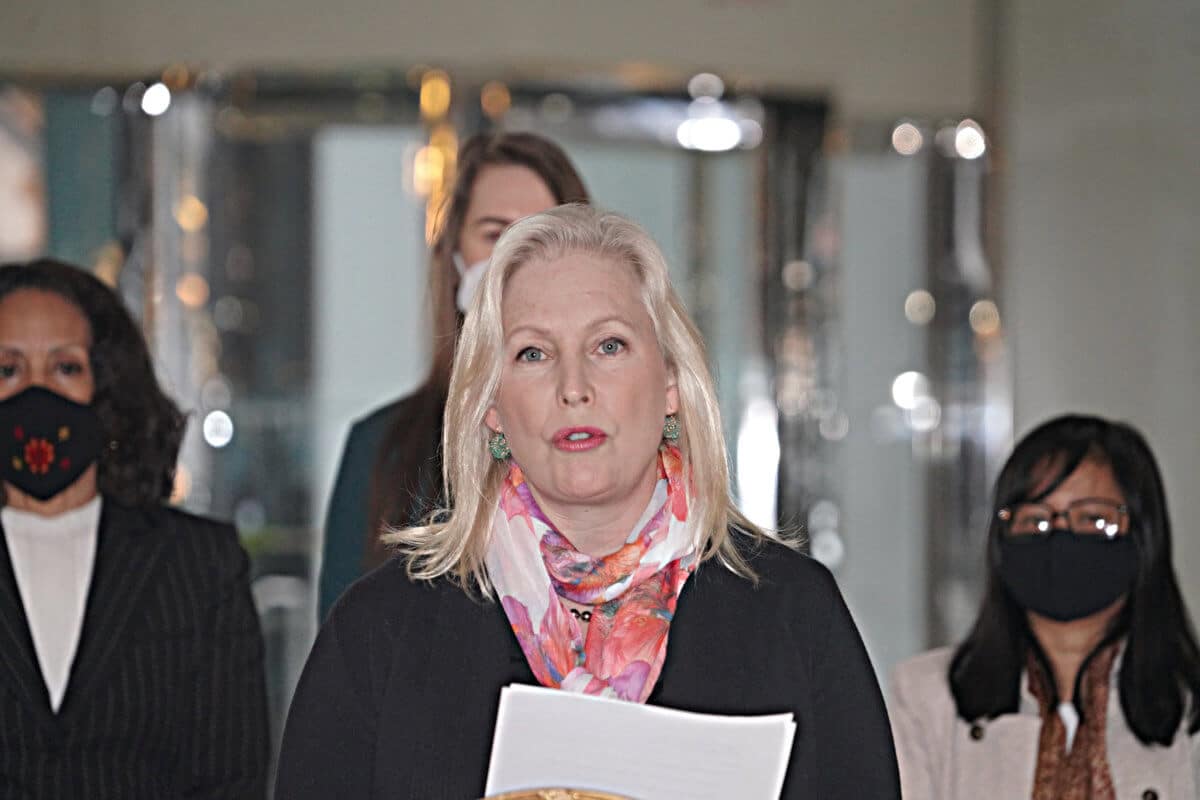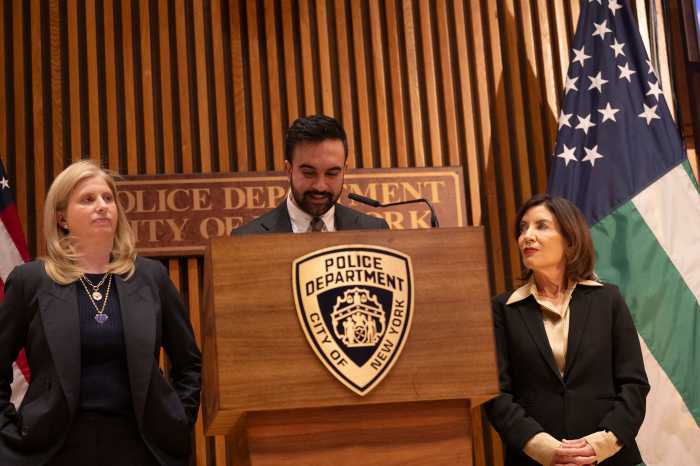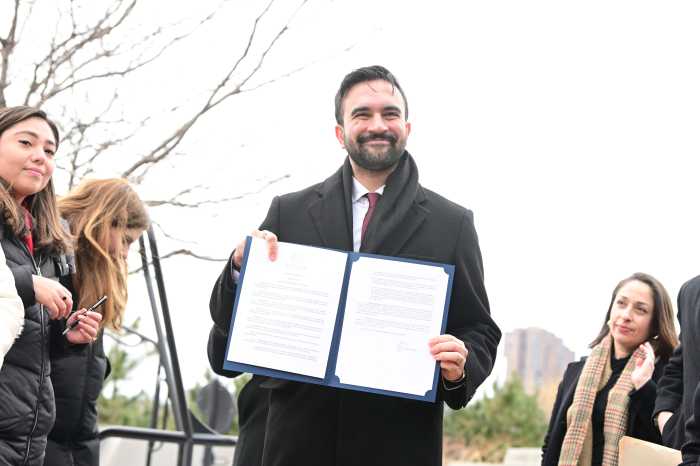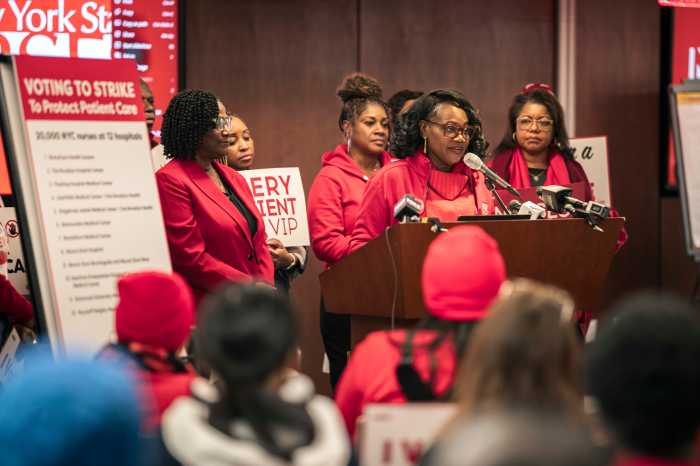Marijuana sale and use is legal in New York — but not across the U.S. — and it’s time for a change in how the federal government sees cannabis, U.S. Senator Kirsten Gillibrand said in Harlem on Sunday.
Gillibrand, along with a host of federal and state lawmakers, called upon Attorney General Merrick Garland and the Drug Enforcement Administration (DEA) to “deschedule” marijuana — underscoring the multifaceted implications of its current classification as a Schedule I substance, putting weed on par with or higher than deadlier narcotics like heroin, fentanyl or cocaine.
According to the senator, the current Schedule I classification for cannabis results in a disproportionate impact on communities of color, citing the unnecessary barriers to employment, housing, and education faced by individuals with marijuana-related criminal records.
“Descheduling marijuana from the Controlled Substances Act is not just a social justice issue; it’s an economic, medical, and public safety issue,” Senator Gillibrand declared. “Countless lives have been torn apart, and individuals in primarily Black and brown communities have been targeted for nonviolent cannabis-related offenses.”
Moreover, the senator argued that the change in classification could have far-reaching positive effects, including a potential reduction in violence associated with international drug trafficking and a substantial boost to the economy through the legalization of cannabis.
Gillibrand was joined at the Jan. 28 press conference by Congress Member Jerrold Nadler, state Senator Cordell Cleare and City Council Member Yusef Salaam. Nadler in particular noted that the War on Drugs, particularly the criminalization of marijuana, as a failed endeavor causing immense suffering.
“Marijuana never should have been placed on the most restrictive schedule of the Controlled Substances Act—alongside substances such as heroin and cocaine,” Nadler asserted. He urged the Biden administration to thoroughly review and deschedule marijuana, signaling an end to its federal prohibition and criminalization.
Cleare, expressing gratitude for Senator Gillibrand’s leadership, declared, “The War on Drugs is over — we all know this by now. And, in the end, it turns out it was nothing more than a war on the American people, particularly people of color.”
The current classification of marijuana under the Controlled Substances Act places it in Schedule I, where substances are deemed to have a high potential for abuse, no accepted medical use in the U.S., and a lack of accepted safety for use under medical supervision.
This classification, dating back to the early 1970s, has been widely criticized as politically motivated, targeting antiwar activists and Black communities.






































